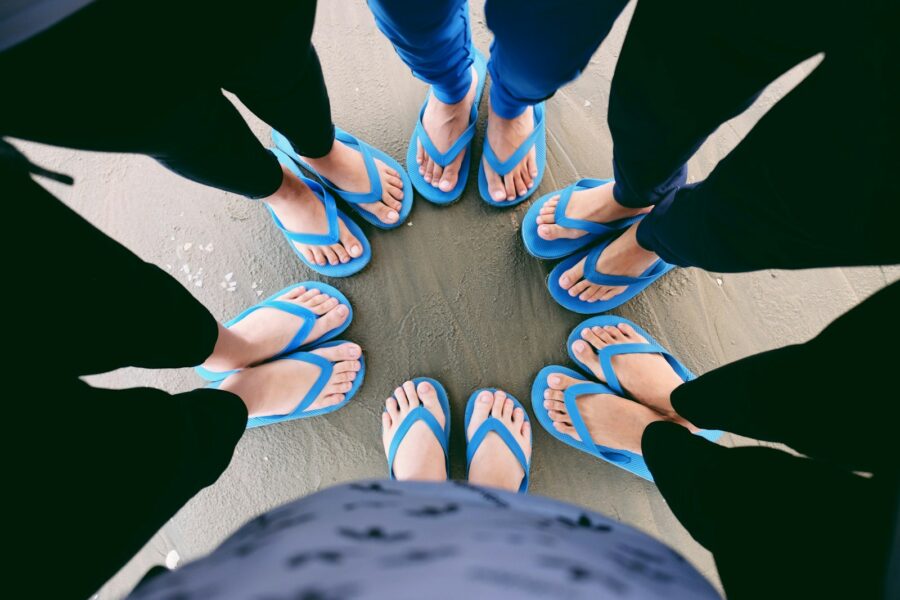A leading UK back specialist is highlighting the health benefits of common summer shoes as many prepare to ditch trainers, wellies, and boots in anticipation of warmer weather.
While commonly considered as unsupportive and lacking in cushioning, flip flops and on-trend ballerina pumps can actually benefit back health because they make the lower leg work harder, which results in stronger back muscles. In the workplace, this can mean fewer days off due to back pain and improved overall productivity.
Mr. Michael Fatica, founder and lead consultant at www.backinshapeprogram.com, emphasises the importance of choosing the right footwear to prevent back pain. He explains that while some people may temporarily benefit from shoes with cushioning and arch support, overly cushioned shoes can weaken foot, leg, and lower back muscles over time. This weakening reduces flexibility and prevents proper muscle development, leading to inadequate spinal support and back issues.
Fatica advises that shoes with minimal cushioning, such as “barefoot” style shoes, are beneficial because they allow feet to move and flex naturally. This natural movement strengthens the muscles, tendons, and ligaments in the feet, legs, and back, improving posture, balance, and overall movement.
In an office environment, proper footwear can greatly influence how employees feel throughout the day. Choosing shoes that promote back health can lead to better posture while sitting and standing, reducing the risk of chronic back issues and enhancing overall well-being.
Michael highlights how the following styles can have a negative impact on back health:
Pointed shoes – any type of shoe that has a narrow toe-box which squashes your feet will impact our gait and balance, which in turn will negatively impact our spinal alignment. In the workplace, this can lead to discomfort and decreased productivity.
Backless shoes/sandals – these can cause a lot of tightness in the arch of the foot and, again, prevent a long, lengthy gait. Holding the body in this unnatural position stresses the spine, so only wear backless shoes occasionally, and never for long walks or commutes.
Platform shoes – Platform heels and wedges are not ideal for the long term because they are, by nature, heavier, more awkward, and place more stress on feet and the lower back. These shoes also tend to be rigid, preventing the feet from bending naturally when walking. This affects posture and gait, making back problems far more pronounced. Wearing these in the office can exacerbate back pain over a long workday.
Summer is also the time for a myriad of social events, where the shoe of choice for many is often a high heel. But, according to Michael, these too are not advised for any sustained period of time.
High heels force you to walk on the balls of your feet, which shifts your centre of gravity forward, causing you to arch your back when you stand, adding to your back pain. A couple of hours is fine, but I would also recommend carrying a pair of trainers in your bag to switch whenever possible and give the back a break.
Mr. Michael Fatica, Founder, BackInShapeProgram
By being mindful of our footwear choices, even in the office, we can take significant steps towards improving our overall back health and well-being.
Joanne is the editor for Workplace Wellbeing Professional and has a keen interest in promoting the safety and wellbeing of the global workforce. After earning a bachelor's degree in English literature and media studies, she taught English in China and Vietnam for two years. Before joining Work Well Pro, Joanne worked as a marketing coordinator for luxury property, where her responsibilities included blog writing, photography, and video creation.



